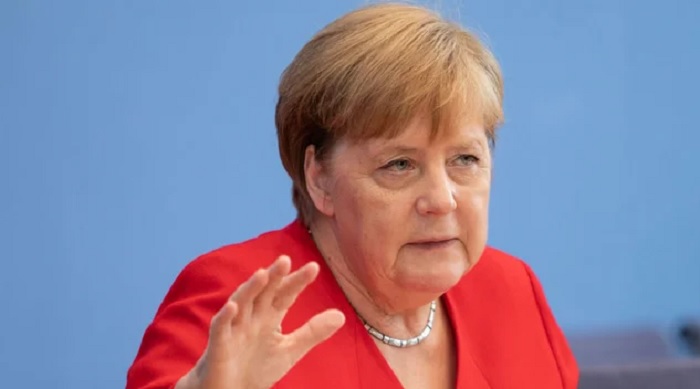
A line in the sublime Hilary Mantel trilogy of Henry VIII’s fixer, Thomas Cromwell, perfectly encapsulates the highest aspirations of the political risk profession. The goal must be always to “Study the world without despising it. Understand the world without rejecting it. Have no illusions, but have hopes. Do not sleepwalk through life.”
During my decade in senior Washington foreign policy circles, during the bad old days of the Iraq War and the bipartisan utopian efforts at nation-building that followed, just such intellectual sleepwalking fast became a nightmare.
The besetting sin of our foreign policy elite is intellectual sclerosis — that what once worked during the halcyon days of our Cold War supremacy is carved in stone, forever being the way for America to operate. The strong, usually unspoken belief of our foreign policy blob remains the misguided notion that foreign allies invariably will knuckle under to American blandishments and do as we say. To put it mildly, after living and working for the past 14 years in Europe, this is simply not the world I wake up in every day.
ADVERTISEMENT
Continuing with old, unsupported analytical assumptions makes understanding our new world practically impossible. Let me be exactingly specific (and, perhaps, highly controversial) as I apply Mantel’s admonition to U.S.-German relations, long a bedrock of the blob’s view of American superiority.
A practical “alliance” between the two simply no longer exists. Washington and Berlin disagree on far too much in policy terms for us to whistle past the graveyard any longer. The sooner American statesmen wake up to the harsh new geopolitical reality of German neutralism, the better.
The old Cold War world was characterized at the global level as a geopolitical contest between the U.S. and the Soviet Union. Further, it was a time of “tight bipolarity,” whereby the allies of each superpower had to march generally in lockstep with their more powerful sponsors.
In the case of the allies of the USSR, failure to do so could lead to outright invasion, as happened to the Hungarians in 1956 and to the Czechs in 1968. While more tolerant of its allies, the U.S., too, brooked only limited dissent. In such a system, while West Germany became a phenomenal economic success story, in terms of geopolitics — particularly given its Nazi past — Bonn was generally content to follow the American geopolitical lead. However, this was a very specific historical time, one that today’s leaders and analysts have lazily extrapolated into being how things will always work.
But this is not the world in which we now live. While the new era still can be characterized at the highest level as a bipolar competition — this time between the U.S. and China — neither are as relatively powerful regarding the great powers beneath them as were either the USSR or the U.S. of bygone days.
ADVERTISEMENT
Instead, we live in a world of “loose bipolarity,” in which great powers such as India, Japan, the Anglosphere countries, Russia, and Germany and the European Union have a lot more room to make independent geopolitical decisions on their own. No longer tied to either superpowers’ apron strings, the great powers of today cannot and must not be complacently counted on by American policymakers to just robotically fall in line.
Germany is the most glaring case in point of when an ally is no longer an ally. Over vast patches of primary foreign policy terrain, Washington and Berlin simply do not agree.
Germany, far from acceding to decades of U.S. pleas (some of which, for my sins, I have been involved in), today shows absolutely no desire in meeting even the most paltry of defense spending commitments; in 2019 Berlin allocated a laughable 1.36 percent of its GDP to its defense. Evidently, military spending is for other people, preferably the hard-pressed American taxpayer.
Further, Germans do not like their long-term “ally” very much. A January 2020 Pew poll found that 57 percent of Germans hold an outright unfavorable view of America, while an October 2019 ECFR poll reported that 70 percent of German respondents want their country to remain neutral in any conflict between Russia and the U.S. Alliance solidarity this isn’t.
Given its trade-dominated economy, Berlin disdains any serious effort to decouple itself from Chinese supply chains, even as Washington is urging its allies to begin constructing parallel trading flows to hedge against Beijing.
The Anglosphere countries (Australia, the United Kingdom and Canada) — far more closely aligned with the U.S. in the new era — have hewed to an increasingly hawkish line over China, ruling out long-term dependence on Huawei over vital 5G telecoms networks, for example. Berlin, instead leading the vanguard of European neutralism, has quietly but consistently failed to rule out Huawei as its potential primary 5G carrier.
Finally, despite the many examples of Vladimir Putin’s general dastardliness — most recently over the Kremlin’s likely poisoning of Russian opposition leader Alexei Navalny — German Chancellor Angela Markel has stubbornly refused to halt construction of the Nord Stream 2 pipeline, which will double Russia’s gas exports to Europe. Leaving supposed concerns about human rights by the wayside, Merkel finds herself susceptible to the American charge that while the U.S. defends Germany from the Russian threat, at the exact same time Berlin is doing big business with Russia.
It is a logical truism that if two major powers fundamentally disagree about trade, defense spending, China, Russia, and even disapprove of one another, these disagreements between “allies” means that they are no longer really allies at all.
Without doubt, President Trump has exacerbated the U.S.-German drift, but he did not cause it. Germany is surely not America’s enemy, nor should it be treated as such. However, to blithely insist — in the face of this mountain of real-world examples — that Germany and America remain allies is to fail Mantel’s test and to sleepwalk through life.
 Eurasia Press & News
Eurasia Press & News



